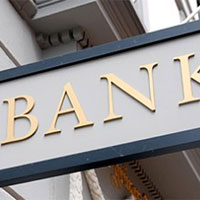To some people a bank account is nothing more than a space to safely store away money. To others, it can be wisely used to manage personal debts and debts of other kinds. If you tend to belong to the latter, your choice of bank account will always be an important one. And yet, to some people, it is more important than to others. People under debt management programs, for example, will need to choose the most appropriate bank account that will enable them meet their goals and manage their debts with particular care.
In-depth considerations will need to be made in regards to the bank, bank account type, method of opening, charges imposed on the particular account by the bank, the benefits and privileges and many other factors. As you can see, even such a seemingly simple task can be a lot of work! And yet, it can pay off: If used well, these accounts may lead a person to manage their debts and eventually get out of debt. You merely need to take a few elemental points into consideration.
Don’t believe empty rhetoric
Some so-called experts will tell you to choose a bank account that has ‘minimum charges yet has maximum benefits’. Needless to say, such a thing does not exist. What you should be looking for instead is an account that provides you with exactly the right kind of facilities at a reasonable price – cheapest is rarely best. There is a kind of basic bank account, for example, which charges a monthly rate, but eliminates overdraft fees. In the end, it could actually save you money.
Go where you are wanted
It is advisable to avoid banks that won’t accept persons under debt management programs from the outset. Even if you could try to get an eccount with them nonetheless and try to persuade them of taking you on, you’re much better off with a bank which understands your situation and will gladly try to help you – rather than making things harder for you.
Avoid overdrafts and credit cards
A regular current account will be sufficient for those with a good or favorable credit ratings. You should however turn down the opportunity of credit facilities or offers of a credit card. Although credit cards can be useful, especially when making online purchases which can save you a lot of money, they tend to make it far too easy to get into debt. There are better alternatives available – prepaid cards, for example, offer all but the same facilities as a credit card without the risk of spending more than you have.
Apply online
Sometimes, it may still be advisable to go into the bank and open the account, especially for individuals with a poor credit history. However, most of the time, you may be better of applying for an account online: No nasty interrogations, no suspicious looks, no efforts of selling you financial products you don’t need. And, most of all: No unnecessary costs!
Using the new bank account
Once the new bank account has been opened and is operational, it should then be used to receive all monies such as salary, wages and other forms of income. The account should also only be used to access the funds in an organized way, such as paying off debts and meeting living expenses such as rent and food.
The account should not be used to take out a loan or any credit facility. This would beat the intended purpose which is to manage current debt and not to introduce new ones. Which is why, as mentioned before, you should opt for an account which doesn’t offer these facilities from the outset. The bank costs and charges should be kept at a minimum so that the bank only makes minimal deductions. If well managed, and if a good debt management plan is implemented then the debt will sooner or later be cleared up. Once the debt is all paid up, a good plan should be implemented in order to build up a good and positive credit rating.
This article was written by William Masters in association with eccount money, a leading service provider of online banking technologies. For the past decade, William Masters has established himself as a leading finance journalist. Originally from Liverpool and now living in and reporting from the City, he has contributed to a wealth of print- and online-magazines, covering a wide range of economic topics.
